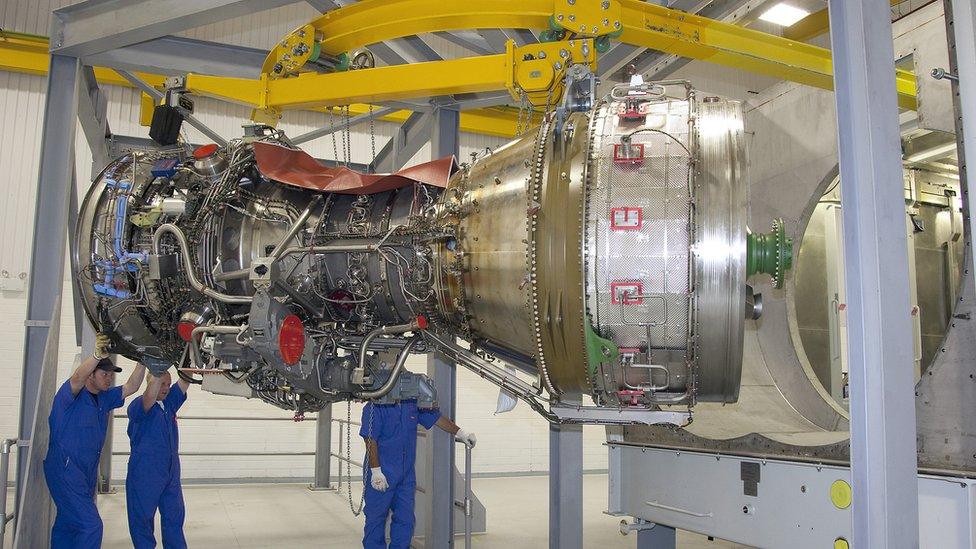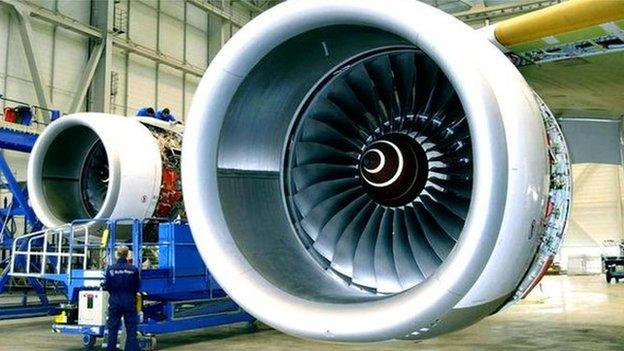Rolls-Royce revamp ousts two top managers
- Published

Rolls-Royce's MT30 marine gas turbine
Rolls-Royce will revamp its management structure and recruit a chief operating officer as Warren East strives to revive the ailing company.
Tony Wood, the head of aerospace, will depart, and Lawrie Haynes, who runs the land and sea division, will step down next year.
The change in structure is part of a plan to save up to £200m a year from 2017, it said, external.
Removing the top layer of management is a bid to simplify decision-making.
Rolls-Royce has issued a series of profit warnings that have battered its share price, leaving it down 38% this year.
Mr East, who joined in July, admitted last month that the engineering group had developed an "accounting fog" that had left investors unclear about its direction.
He wants to "simplify" Rolls-Royce to make it a more responsive business.
From January, the company will operate as five businesses, with the presidents of civil aerospace, defence aerospace, marine, nuclear and power systems reporting to Mr East.
Currently, the firm has two divisions: aerospace, and land and sea.
"The changes we are announcing today are the first important steps in driving operational excellence and returning Rolls-Royce to its long-term trend of profitable growth," said Mr East.

Rolls-Royce chief executive Warren East
Rolls-Royce employs more than 21,000 people in the UK, with more than 12,000 employed at its Derby aerospace engines and submarines division.
Earlier this year, the company announced 3,600 job cuts and warned that some of its 2,000 senior managers would depart.
The crisis claimed the scalp of John Rishton, who Rolls-Royce said in April would step down after four years as chief executive.
The company makes engines for the UK nuclear submarine fleet. It was reported this week that the government had drawn up contingency plans, should Rolls-Royce's problems become so acute that it faced being broken up.
Business minister Anna Soubry told the House of Commons that the government was "monitoring the situation carefully" but did not elaborate.
The next generation of nuclear submarines, due to be deployed by 2030, is being planned by the government.
- Published14 December 2015
- Published12 November 2015
